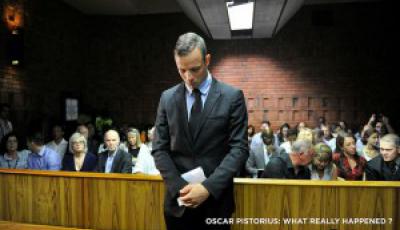Reflections on the Pistorius Trial: Neither Superhuman nor a Monster from the Past
Posted:
Time to read:
If the sociologist Emile Durkheim is wandering around the afterlife, I’d hazard guess that he has been paying a lot of attention to the trial of Oscar Pistorius.
Durkheim’s take on what is going on when we punish a human being is bracing, perhaps even shocking. For all that modern societies have civilized punishment, he argued, taking it from the clutches of mobs and putting it in the hands of judges, what is going on is at base heated and bloody. We are building solidarity among ourselves by stoning somebody else. We are expressing outrage, revenge, a desire to hurt, and the fact that we experience these intense feelings together draws us closer to one another.
This is exactly what has been going on with the Pistorius trial, and I get the sense that the feelings of vengeance are much stronger among white South Africans than among black South Africans. Pistorius has offended a sense of racial pride, and a lot of white people are hungry for his blood.
Wandering around Johannesburg and Pretoria these last couple of weeks, I get the sense that many people in the once segregated townships don’t care one way or another about Oscar Pistorius. Another rich person received soft justice. So what? It happens all the time.
The vitriol spewing across the radio talkshows has been disproportionately white, as far as I can tell. White people I’ve known for years, usually calm and thoughtful, grow red with anger when they talk about Oscar Pistorius.
What is going on here? It is hard to talk about, mainly because it involves thoughts and feelings that white South Africans generally keep private. Before he killed Reeva Steenkamp, Pistorius represented a heroic, outsized model of how to be white in post-apartheid South Africa. Here was a boy who grew up without legs and learned to run faster than the able-bodied. Here was a kid who lost his beloved mother in his early teens and turned his grief into iron-like fortitude.
The subtext is not hard to read. Never mind affirmative action, if you are world class, your brilliance will show. Never mind that your government is ambivalent about helping you, if you have sufficient self-discipline you will flourish.
Ironically, Pistorius’s success could be experienced as a white achievement precisely because it instilled genuinely patriotic feelings. Here was a white man who could wrap himself in the national flag, a white man of whom black people were proud. It was almost too good to be true: an exemplar of white self-help who was also a post-apartheid hero.
And then he killed Reeva Steenkamp and the Pistorius who seemed to emerge over the following months made white people awfully uncomfortable. The image of the iron-willed superstar was replaced by a truly horrible figure from the white South African past: a paranoid, gun-toting man, his body pumped with testosterone, his 9-mil. forever in reach; a man who was horrible to women, who squealed in delight as he shot his customised, flesh-tearing bullets into watermelons. Here was a stick figure of white depravity, as if invented by an anti-apartheid propagandist.

And so, when Judge Thokozile Masipa presided over Pistorius’s trial, she was placed in the oddest position. Here was a black woman in judicial robes, a symbol of democratic SA if ever there was one. And her job, in the eyes of many white people, at any rate, was to punish a white man for causing grief to his own kind.
Isn’t ironic then, that what Masipa did instead was feel deep sympathy for Pistorius? While many white people looked at him and saw a monster, Masipa saw a legless man hobble fearfully through his house. So much sympathy did she feel that she bent the law as far as she might dare to protect him.
Earlier this week, news broke that Masipa had been put under police protection in response to an avalanche of threatening comments. The threats have come almost exclusively from white people. Many have been nakedly racist; Masipa has been told that she is an incompetent black woman. Her real crime, I suspect, is that she refused to share in the hatred of Pistorius. She had no desire to see him bleed.
Pistorius is neither superhuman nor a monster from the past. We can be certain that he is neither because each is a caricature. The truth is that we can never know Pistorius’s heart. As with every other human being, what happens there is too private and too complicated to see the light of day. Nor can we know for certain what happened between him and Steenkamp that night. The rage that has burst forth in the wake of Masipa’s judgment has little to do with Pistorius or Masipa. It has to do with the difficulties of being white at the tip of the African continent.
Keywords:
Share:
